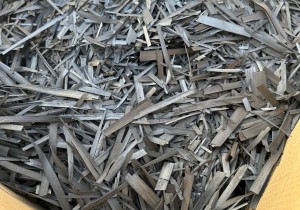
Biochar from Date Palm Bio-Waste
Date palm bio-waste can be a valuable source for producing biochar, a carbon-rich material obtained through the process of pyrolysis, which involves heating biomass in the absence of oxygen. Biochar has several agricultural and environmental benefits, such as improving soil fertility, water retention, and carbon sequestration.
Using date palm bio-waste to produce biochar aligns with sustainable agricultural practices and contributes to both waste management and soil improvement.
Biochar made from date palm bio-waste offers an innovative solution to both waste management and soil enhancement. Date palm bio-waste, which includes leaves, stems, and fruit pits, is abundant in regions where date palm cultivation is prevalent, such as the Middle East and North Africa.
Date palm bio-waste is collected from farms or processing facilities. This waste can include pruned fronds, empty fruit bunches, and other residues.
The bio-waste undergoes a process called carbonization in a low-oxygen environment, typically in a pyrolysis reactor. This process thermally decomposes the organic material, leaving behind a carbon-rich residue, which is the biochar.
Optionally, the biochar can undergo an activation process to increase its porosity and surface area, which enhances its ability to adsorb nutrients and retain water.
The resulting biochar can be used in various applications, including soil amendment, water filtration, and as a component in compost or organic fertilizer blends. When added to soil, biochar improves soil structure, enhances nutrient retention, promotes microbial activity, and increases water-holding capacity.
Using date palm bio-waste to produce biochar provides several benefits:
• Waste Reduction: It diverts organic waste from landfills or open burning, reducing environmental pollution.
• Soil Improvement: Biochar improves soil fertility and health, leading to increased crop yields and resilience to drought and nutrient depletion.
• Carbon Sequestration: Biochar is a stable form of carbon that can remain in the soil for hundreds to thousands of years, effectively sequestering carbon and mitigating climate change.
• Economic Opportunities: Biochar production can create economic opportunities for farmers and communities by adding value to agricultural residues and creating markets for biochar products.
Overall, utilizing date palm bio-waste to produce biochar presents a sustainable and economically viable solution for both waste management and agricultural productivity.
